 Mysteries
Mysteries  Mysteries
Mysteries  History
History 10 Surprising Stories About the Texas Rangers
 Humans
Humans 10 Philosophers Who Were Driven Mad by Their Own Theories
 Miscellaneous
Miscellaneous 10 Video-Game-Worthy Weapons and Armors from History
 Weird Stuff
Weird Stuff 10 Psychics Who Accurately Predicted Wartime Events
 The Arts
The Arts 10 Pieces of Art Inspired by a Broken Heart
 Health
Health 10 Science Fiction-Sounding New Medical Treatments
 History
History 10 Surprising Facts About the Father of Submarine Warfare
 Space
Space Ten Astonishing New Insights into Alien Worlds
 Weird Stuff
Weird Stuff 10 Bizarre Summer Solstice Rituals Still Practiced Today
 Mysteries
Mysteries Top 10 Haunting Facts About the Ghost Ship MV Alta
 History
History 10 Surprising Stories About the Texas Rangers
 Humans
Humans 10 Philosophers Who Were Driven Mad by Their Own Theories
Who's Behind Listverse?

Jamie Frater
Head Editor
Jamie founded Listverse due to an insatiable desire to share fascinating, obscure, and bizarre facts. He has been a guest speaker on numerous national radio and television stations and is a five time published author.
More About Us Miscellaneous
Miscellaneous 10 Video-Game-Worthy Weapons and Armors from History
 Weird Stuff
Weird Stuff 10 Psychics Who Accurately Predicted Wartime Events
 The Arts
The Arts 10 Pieces of Art Inspired by a Broken Heart
 Health
Health 10 Science Fiction-Sounding New Medical Treatments
 History
History 10 Surprising Facts About the Father of Submarine Warfare
 Space
Space Ten Astonishing New Insights into Alien Worlds
 Weird Stuff
Weird Stuff 10 Bizarre Summer Solstice Rituals Still Practiced Today
10 Extraordinary Facts About History’s Deadliest Dictator
Adolf Hitler, Josef Stalin, and other mass-murdering 20th-century dictators are considered to be some of the worst human beings who ever lived. Any supporters they have today are members of a fringe, dismissed by the rest of society as idiots or blind fanatics. Mao Tse-tung, however, is still respected in many quarters and even revered in his home country. His brutal rule over China from 1949–76 led to the deaths of an estimated 50–75 million people, making his reign the bloodiest in human history.
Mao was ruthless and tolerated no opposition, so few members of his government questioned his disastrous Great Leap Forward and Cultural Revolution programs. The policies of the Great Leap Forward, which ran from 1958–61, attempted to achieve rapid economic growth and industrialization, but it only ended up in widespread catastrophe, causing horrific violence and a famine that killed millions of people. The Cultural Revolution, which was Mao’s plan to purge the country of his enemies, caused millions more deaths from 1966 until Mao’s own death in 1976. Mao’s legacy has been very controversial. While some say he was a simplistic brute who cared only about holding onto power, others see him as a complicated visionary who ultimately transformed China for the better.
10 He Came from A Peasant Family
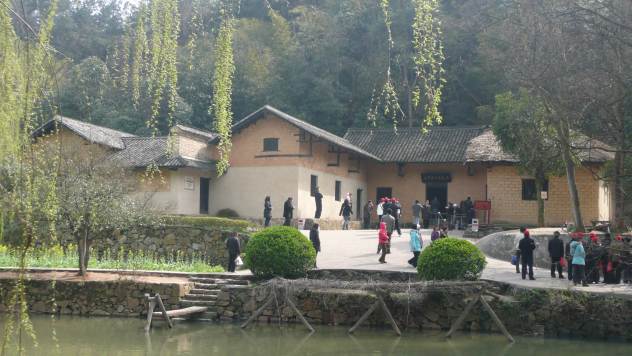
For a man whose impact on the history of his country would be the greatest in centuries, Mao Tse-tung came from very humble and unremarkable origins. Mao was born on December 26, 1893, to a family of farmers in Shaoshan, a small village in the province of Hunan. His mother Wen Qimei was a kind and loving Buddhist, while his father Mao Yichang was a strict, hard-working Confucian. Although born poor and stuck with the debt that his own father Enpu had left after his death, Yichang had become a self-made man by lending money and buying the land of other impoverished peasants. The Maos were one of the richest families in the village, and they lived in luxury compared to their neighbors, who lived in a state of intense poverty and constant fear of starvation.
Unlike most peasant families, the Maos could afford to send their son to school, and the young boy dearly loved to read and learn. Although Mao was a sharp student, he was rude and hostile. He refused to obey the rules and was kicked out of school on three separate occasions by the time he was 13. He would go back to school when he was 16, this time in Xiangxiang, 27 kilometers (17 mi) away from his home village. Though he was made fun of for his battered peasant clothes, Mao made friends with a few other students and got along well with his teachers. Shaoshan was an extremely isolated, backward village that didn’t have a single newspaper, but Mao learned a heap of information at his new school, including that the emperor had died two years earlier and had been succeeded by a two-year-old relative named Puyi.
9 He Was First Married At Only 14 Years Old
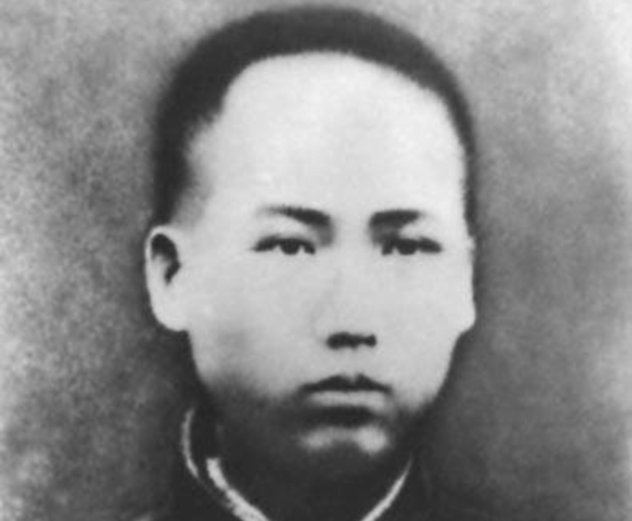
Mao Tse-tung was married four times through his life, and his first marriage took place when he was only 14 years old in 1908. The bride, an 18-year-old cousin named Luo Yigu, had been picked for Mao by his father and Luo’s father Helou. Mao didn’t meet Lou until the day of their wedding, and by all accounts, he wasn’t happy with the marriage. His granddaughter Kong Dongmei has said that Mao wanted to marry a different cousin, a girl named Wang Shigu. Mao’s proposal, however, was rejected because Wang’s horoscope didn’t match with his.
Mao regarded his new wife with disgust and, surprisingly for a teenage boy, refused to even sleep with her. Although she moved into his family’s house, he wouldn’t share a room with her, either. In the young man’s view, Luo would only get in the way of his studying. Shortly after the wedding, a disgruntled Mao left home to go live with his friend, a move which ended up causing a scandal in his village. Luo, disgraced and humiliated, continued to stay at the Maos’ home, supposedly as Yichang’s concubine. The poor woman ended up dying of dysentery shortly before her 20th birthday in February 1910. Mao showed no signs of regret or remorse and later told American journalist Edgar Snow in the 1930s that, “I do not consider her my wife.”
8 He Was An Accomplished Poet
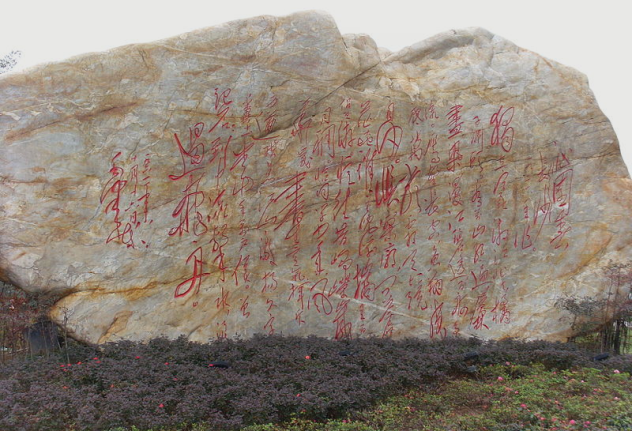
Although we normally wouldn’t expect a mass-murdering psychopath to have an artistic side, Mao Tse-tung is also well-remembered in his home country for his poetry and writing style. Even some Western scholars have been impressed with his poetry, although others, like the first English translator of Journey to the West, have said it was, “not as bad as Hitler’s painting, but not as good as Churchill’s.”
In contrast to his radical political views, Mao preferred classical literature and wrote his poetry only in classical styles. Mao began writing poetry when he was a child, but his first book of poems wasn’t published until January 1957. His poems became extraordinarily popular in the years that followed, no doubt because they were also taught and memorized in schools. Whether genuine or the result of propaganda, the fervor for his poetry during the Cultural Revolution inspired devotees to carve lines from his verses, or entire poems, onto everything from grains of rice to mountain walls.
7 He Wrote The Second-Most-Printed Book Of All Time
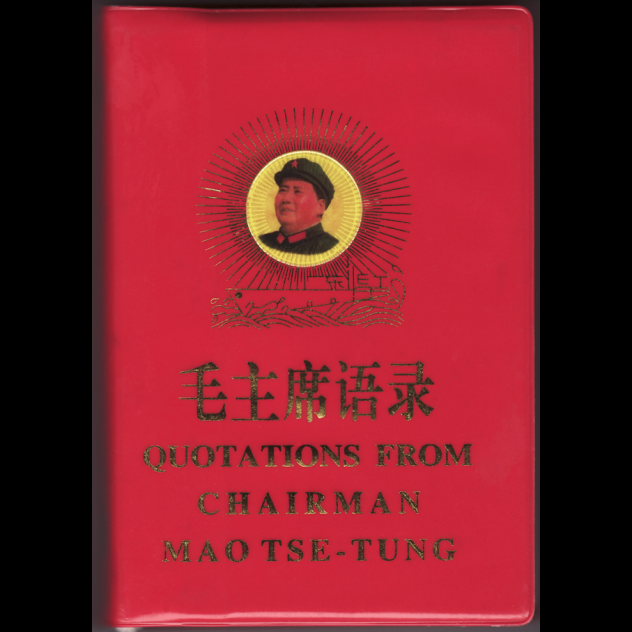
Quotations from Chairman Mao Tse-Tung, better known in the West as The Little Red Book, is the most printed book in the world after the Bible. The book, designed with a simple red cover and small enough to fit inside a pocket, was initially printed in 1964 for the instruction of the People’s Liberation Army. It became a sort of holy text during the Cultural Revolution, and anybody who damaged or destroyed a copy could be given a long prison sentence. Soldiers, ordinary citizens, and even illiterate farmers were all forced to study the book and memorize passages by heart.
From 1966–71, over one billion official copies were published in addition to many pirated versions and unapproved reprints. The book’s influence wasn’t limited to just China, and copies were distributed to more than 100 countries in 1966 and translated into dozens of different languages. Innumerable packs of Western intellectuals and revolutionaries adored the book. Maoist groups were established across the globe, everywhere from poor countries like Peru to wealthy ones like the United States. Even the far right was infected with the craze; the Italian neo-fascist group The People’s Fight routinely praised him for his nationalism and opposition to the United States.
Mao-mania eventually wore off after reports of the many terrible atrocities committed by the chairman’s regime started leaking out of China. Following Mao’s death and the horrific violence that The Little Red Book inspired during the Cultural Revolution, the Chinese government withdrew over 100 million copies from circulation, blaming it for “widespread and pernicious influence.”
6 He Allowed Intellectuals To Criticize His Government And Then Turned On Them
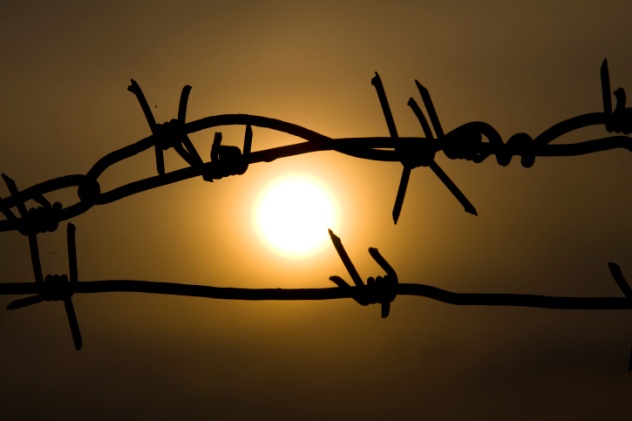
While dictators are notorious for their hatred of dissidents and intellectuals, few have ever pulled a stunt like Mao’s Hundred Flowers Campaign. The policy, announced by Mao in a February 1957 conference held in Beijing, would allow writers and intellectuals to freely criticize the government, so long as they offered ideas and solutions rather than mere criticism. Potential schools of thought were referred to as flowers, and Mao wanted “a hundred flowers” to bloom. Critics were originally skeptical, but after further reassurance, they started to speak out and call for reforms. By the time summer came around, the chairman’s premier, Zhou Enlai, was receiving millions of critical letters at his office. Mao then decided that enough was enough; “poisonous weeds” had ruined the program.
The next year, Mao launched the Anti-Rightist Campaign, which rounded up over 550,000 people suspected or known for criticizing the government. Far from allowing free political expression, the Hundred Flowers Campaign led to the exact opposite. Mao would later remark that it had “enticed the snakes out of their lairs.” Critics were banned from writing, exiled to remote reeducation and labor camps, and executed. The exact number of executions is unknown, but many people also died from being tortured, beaten, and overworked in the labor camps.
Some biographers and analysts of Mao’s life have speculated that his extreme hatred for intellectuals might have stemmed from the time he worked as a librarian. In 1919, after getting a teaching degree from Hunan Normal School, Mao got a job at the library of Beijing University. He made many attempts to befriend and chat with the university’s numerous great scholars and thinkers, but they ignored him due to his peasant origins and lowly position.
5 He Loved To Swim
Mao Tse-tung strongly encouraged physical education and exercise and was very fond of swimming. In one notable incident, just as the Cultural Revolution was about to erupt, the 72-year-old chairman joined 5,000 other swimmers for the Cross-Yangtze Competition, a race to cross the Yangtze River near Wuhan. Certainly helped along by the river’s strong currents, Mao was able to swim 16 kilometers (10 mi) in little more than an hour. The event was greatly celebrated in the media, and pictures taken of Mao’s swim were made to be a sign that the old man was still active and powerful, while his political opponents were pathetic and weak.
That wasn’t the first time Mao put his swimming skills to good use, either. In the summer of 1958, when relations between China and the Soviet Union were continually straining, Soviet Premier Nikita Khrushchev paid a state visit to Mao in Beijing. He was given a harsh and cold reception at the airport, and Mao made sure that his visit was as humiliating and upsetting as possible. At one point, Mao invited Khrushchev to go for a swim with him in his personal pool. The point was to intimidate the Soviet leader; Khrushchev was short, fat, and unable to swim. As he nervously swam in the children’s side of the pool, Mao confidently stroked through the deep end. When Mao asked him to come over to the other end, Khrushchev was given a pair of water wings. Mao, as Khrushchev biographer William Taubman would remark, “watched Khrushchev’s clumsy efforts with obvious relish and then dived in the deep end and swam back and forth using several different strokes.”
4 He Was A Shameless Pervert
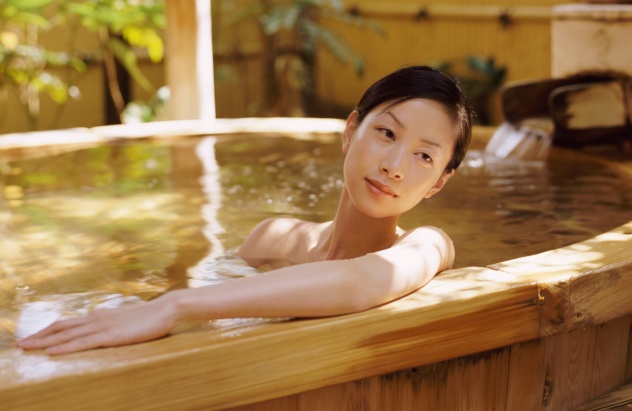
In 1994, Dr. Li Zhisui published The Private Life of Chairman Mao, a 663-page memoir that was immediately controversial. Li was Mao’s private doctor from April 25, 1955, until the chairman’s death on September 9, 1976. He took meticulous notes during this time but got rid of them during the Cultural Revolution, afraid that somebody would find them. In 1977, he decided to rewrite them as best as he could. He planned to publish them as a book after he moved to the United States in 1988. The book revealed many scandalous details about Mao’s life that were previously unknown to the public and press, and it was quickly banned in China.
According to Li, Mao never bathed, brushed his teeth, or washed his hands. One of his testicles had never descended, and although he occasionally suffered from impotency, he enjoyed a very active and reckless sex life. He stopped sleeping with his fourth and last wife Jiang Qing during the 1960s, instead preferring young women and underage teenagers. He would sleep with almost any attractive woman he could get his hands on—dancing partners, servants, or soldiers. He would even organize nude water ballets in his beloved swimming pool.
Later in life, he caught a sexually transmitted disease (caused by a parasite) called trichomoniasis. Male carriers of trichomoniasis often show no symptoms, but it can be quite painful for females, causing genital itching and painful urination. Mao knowingly spread this to dozens, possibly hundreds, of young women. Far from being disgusted, the women who became infected were proud. “The illness,” Li wrote, “transmitted by Mao, was a badge of honor, testimony to their close relations with the Chairman.” Mao seemed to show no signs of remorse for anything that happened to other people. “So far as I could tell, despite his initial friendliness at first meetings, Mao was devoid of human feeling, incapable of love, friendship, or warmth.”
3 He Was A Feminist
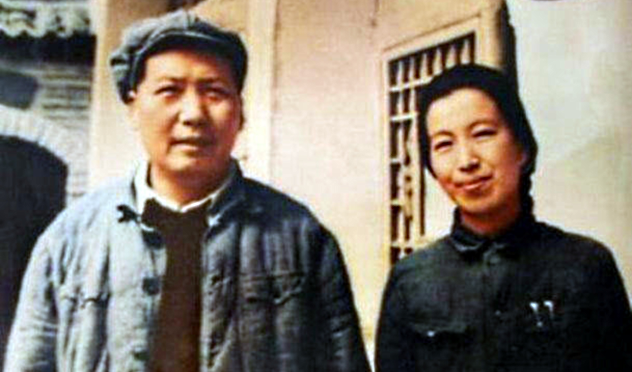
Confusingly, in spite of Mao’s horrible treatment of his wives and lovers, he considered himself a champion of women’s rights. While his views might not be considered out of the ordinary today, they were very progressive for his time and place. His own arranged marriage made him feel very bitter toward the custom, and he wrote several passionate essays against it from 1919–20. The essays, inspired by a news story he heard about a young woman who slit her throat after being forced to marry a man she didn’t love, made his views very clear. Like many other Chinese radicals of the day, he argued for women to be given the same rights as men, including the rights to divorce, go to school, and inherit property.
After the People’s Republic of China was established, Mao and his government passed a sweeping series of reforms in the Marriage Law of 1950. Arranged marriage was now illegal, and the minimum age for women to marry was 18 (and 20 for men). Women could also divorce, remarry, and buy property as they pleased. China’s constitution promised women “equal rights with men in all spheres of life, in political, economic, cultural, social, and family life.” While it’s true that conditions did improve, many Chinese men resented these reforms, and women still suffered discrimination and lower pay throughout the Maoist Era.
2 His Son Died In The Korean War
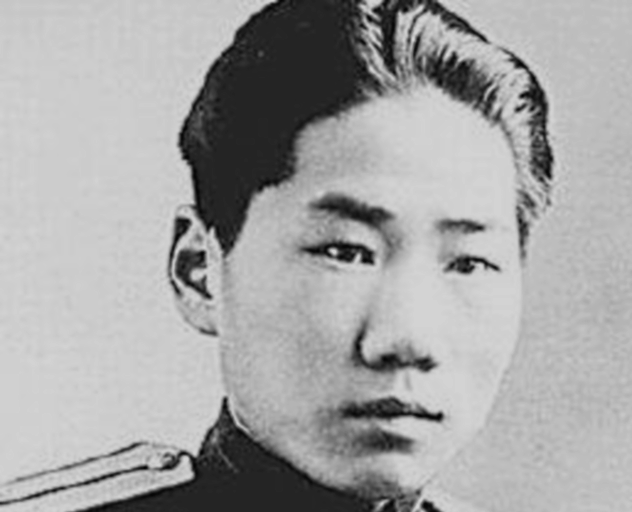
The Korean War, the civil war that pitted South Korea and its anti-communist allies against North Korea and its communist allies from June 1950 to July 1953, is known in China as The War to Resist US Aggression and Aid Korea. Although the communist Chinese government was hesitant to intervene, Mao insisted that they send troops to help North Korea. He was afraid that the US and the UN forces might attack China, but he also thought that it was a good opportunity to show off to the communist world. The Chinese eventually entered the war in October, sending 1.2 million volunteers.
Although the war was short, the poorly equipped Chinese army suffered a shocking number of casualties. While the precise number of dead isn’t exactly known, the government itself has said that 114,084 soldiers were killed in military action, 25,621 soldiers were missing, and another 70,000 were lost to wounds or illness. Many families were affected by this devastating war, including the Maos.
Mao’s 28-year-old son, Anying, was one of its casualties. Other party leaders thought it was a bad idea for Anying to fight, but Mao had no problem with it. “Who will go if my son doesn’t?” he asked. Anying died in an American bombing raid only a month into the Chinese intervention. When Mao was informed of the news, he couldn’t eat or sleep for the rest of the day. “It was his misfortune to be Mao Tse-tung’s son,” he remarked and then spent the night doing nothing but sitting in grief and smoking.
1 He Dramatically Improved His People’s Well-Being
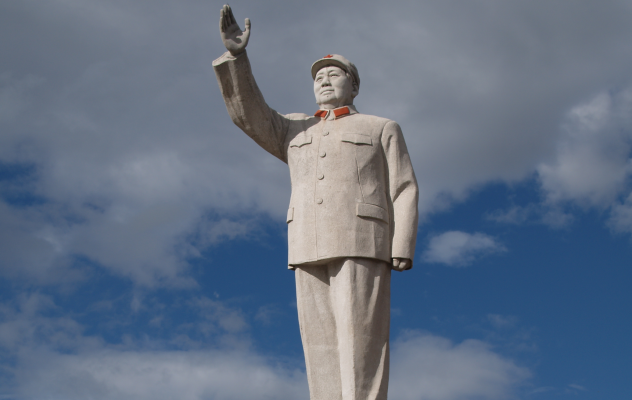
Ironically, for a monster who claimed the lives of millions of victims, Mao Tse-tung and his communist government also did a lot to improve the well-being of the average Chinese person. When Mao came to power in 1949, the average life expectancy for a Chinese citizen was only 36 years. Conditions for the poor in the cities were brutal, and they were even worse in the countryside. Medical treatment was nearly nonexistent for this segment of the population, so catching even a basic ailment could mean death. Under the communists, massive public health care and basic hygiene programs were launched, resulting in lower infant mortality rates and an increase of average life expectancy to 64 years by the late 1970s.
Mao and his policies were also responsible for increasing mass literacy. Historically, education, and even the abilities to read and write, were reserved exclusively for the Chinese elite. In 1949, out of a population of 540 million people, only 20 percent of the adult population were literate. New schools were set up all over the country, and thanks to the communists’ simplification of the Chinese writing system, the adult literacy rate had increased to 66 percent by 1979.
Mao is still very popular with the common people, and he has been deified in some quarters. Taxi drivers hang his picture up in their cars as a good luck charm, and peasants keep Mao Tse-tung statues in their ancestral shrines. According to an assessment of the modern Mao cult by The Guardian, “Mao’s admirers think that he stood for egalitarianism and righteousness, whereas the current elite looks greedy, corrupt, and contemptuous of the lower classes.”
Tristan Shaw is the editor at Bizarre and Grotesque, a new blog project devoted to unsolved murders, paranormal phenomena, and just downright weird stuff.








